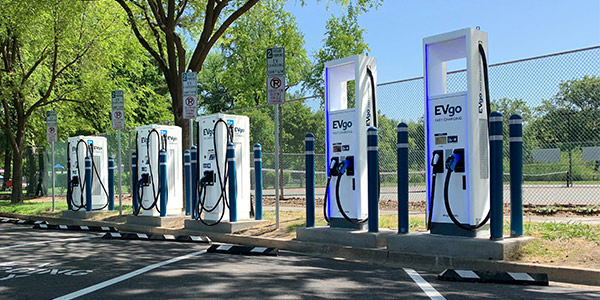New Hampshire legislators are considering a bill that would require the state’s vehicle fleet to be emissions-free by 2042 (SB 131-FN).
Gov. Chris Sununu vetoed a similar bill in 2019, citing concerns about the costs of electric vehicles at the time. But Sen. David Watters (D), sponsor of the bill, is optimistic about its chances for passage this year because of the declining costs of EV ownership.
“The state could save tens or hundreds of millions of dollars on maintenance costs because the cost of [EV] operation, let alone fuel costs, is so much lower than standard vehicles,” Watters said during a New Hampshire Senate Transportation Committee hearing Tuesday.
Under the bill all new light-duty trucks and passenger vehicles leased or purchased by the state would be required to be emissions-free by 2026. In addition, new trucks and other vehicles exceeding 10,000 pounds would need to be emissions-free by 2032. There is room in the bill for consideration of alternatives when existing zero-emission vehicle technologies do not align with the vehicle need, such as for police cruisers or snowplows, Watters said.
The most recent New Hampshire state vehicle bid covering the 2021 model year demonstrated the competitive cost of new EVs, Rebecca Ohler, administrator of the Technical Services Bureau in the New Hampshire Department of Environmental Services’ Air Resources Division, said in her hearing testimony.
In the bid’s four-door, five-passenger sedan category, the vehicle with the lowest operating cost over its lifetime was the all-electric Chevrolet Bolt, she said. The Bolt, she added, cost about $500 less than the second lowest vehicle and “thousands of dollars less than most of the other vehicles within the category.”
If the bill is passed without amendments, state agencies would be required to create a vehicle transition plan by mid-2022. Watters noted that the bill does not require agencies to take any cars or trucks out of service until they have reached the end of normal operations.
Charging Infrastructure
The bill also includes language that expands on an existing plan to spend funds from the 2016 Volkswagen diesel emissions settlement on DC fast-charging infrastructure development throughout the state.
Ohler said that she expects the Department of Environmental Services to issue a request for proposals soon for the buildout of that fast-charging network.
The bill would allocate a portion of the settlement funds to a rebate program for municipalities that build charging infrastructure. It also would authorize utilities to include make-ready programs under a systems benefits charge to pay for network upgrades that support charging facility installation.
Madeleine Mineau, executive director of Clean Energy NH, asked the committee to consider including review and approval standards for make-ready investments that utilities seek to recover.
“I want to make sure that, like all other utility investments that are recovered from their customers, that those are prudent investments and in the benefit of their customers,” Mineau said in her testimony.
Watters said that the bill includes a surcharge for EV owners to support charging infrastructure expansion costs after VW settlement funds are exhausted.
To address EV charging station rate design, the bill provides a series of guidelines for utilities. It says that “appropriate” rate design features include:
- rates that account for seasonality cost drivers on the electric system;
- load management offerings;
- time-of-use rates, when metered separately from other loads; and
- demand charges for high-demand equipment.
Mineau said that Clean Energy NH disagrees that demand charges are appropriate for fast charging rates.
“We actually think that it’s a very significant disincentive to building out the DC fast-charging network,” she said.



